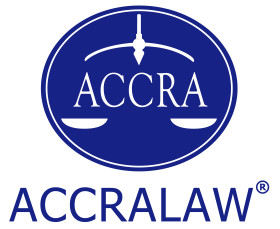
You are driving your car on your way home when you encounter a group of police officers by the side of road who signal you to stop. You comply with the order and stop somewhere near their group. One of the officers approaches your car, taps at your window, and then asks you whether he can conduct a brief search of your vehicle. Before you can raise any objections, the officer tells you that the search is merely routinary and what will be involved would be a simple visual search.
Is the police officer correct?
The problem seems easy enough at first glance. Our first instinct might be to recall the Supreme Court’s landmark ruling in Valmonte v. De Villa (G.R. No. 83988, 29 September 1989, 258 Phil. 838) wherein the constitutionality of police and military checkpoints was upheld. In the said case, the high court held that checkpoints constitute as “reasonable searches” in the constitutional sense since they are necessitated by the “interest of public safety.”
Subsequent case law then proceeded to clarify that a routine checkpoint search is constitutionally permissible if it will merely entail a visual search. Reasonable suspicion, or any form of suspicion for that matter, is not even required for a routine checkpoint search to be validly conducted. But on the other hand, an extensive search would only be permissible if the officers have probable cause that the vehicle is storing or transporting an illegal item or object that may be subject to seizure under the law (see People v. Sapla, G.R. No. 244045, 16 June 2020).
However, one should note that unlike in Valmonte, no checkpoint was involved in the hypothetical scenario presented above. Rather, the private car was stopped by a group of police officers who may or may not have any valid reason to stop the driver.
This is where differentiating routine checkpoint searches from “general stops” conducted by police officers is important. The latter type of searches falls under the much broader category of search of moving vehicles. In Caballes v. Court of Appeals (G.R. No. 136292, 15 January 2002, 424 Phil. 263), the justification for this warrantless search was grounded on the impracticability of securing a warrant for a moving vehicle which can be “quickly moved out of the locality or jurisdiction in which the warrant must be sought.”
In comparison, the justification for checkpoints, as discussed in Valmonte, is based more on the needs and exigencies of public safety. Thus, in People v. Manago (G.R. No. 212340, 17 August 2016), the Supreme Court characterized checkpoints as a “variant of search of moving vehicles.” In other words, the checkpoint in Valmonte is a much more specific form of a warrantless vehicular search with its own set of special rules and requirements.
What will then govern as regards general police stops illustrated in the situation given above? Note that the conduct of a general stop does not necessarily require a validly set up checkpoint. It might be carried out, for example, by a roving police officer who may be curious about a certain vehicle traversing his patrol area. Can the said officer validly stop and search the moving vehicle—without a checkpoint and without evincing any reasonable suspicion or probable cause—on the claim that it is merely routinary?
The 2013 Philippine National Police Operational Procedure (“PNP Manual”) indicates that a general stop and search of a moving vehicle cannot be done without “reasonable or probable cause.” Jurisprudence is likewise clear that probable cause is required for a warrantless search of a moving vehicle. This means that, unlike a checkpoint, a police officer conducting a general stop must first show probable cause before he can flag down a vehicle and to conduct any form of search on it thereafter.
This conclusion is supported by the fact that under the PNP Manual, the establishment of checkpoints needs to first be authorized by the “Head of Office of the territorial PNP Unit” and is required to be properly coordinated. Hence, a police officer conducting a mere routine patrol cannot arbitrarily create a checkpoint on his own and then proceed to randomly stop and search whatever vehicles he may be curious about.
To summarize, a visual search of a private vehicle in a police or military checkpoint is allowed even in the absence of probable cause or suspicion. Precisely because, these routinary searches are supposed to be “suspicionless.” Probable cause, however, will already be required if the search will be extensive as when it will entail the opening of the trunk or other compartments of the car. The same should also be true as regards the stopping and searching of private vehicles without the benefit of a checkpoint. A police officer, in the absence of a checkpoint, cannot stop and search a moving vehicle without probable cause on the pretext that the search is “routinary” because, in truth and in fact, it actually is not.
Lastly, it should also be emphasized that the discussions herein are limited to the stop and search of private cars and vehicles. As to public vehicles, a different rule governs wherein more intrusive searches in checkpoints are allowed due to the reduced expectation of privacy (see Saluday v. People, G.R. No. 215305, 3 April 2018).
Author:
 John Anthony F. Almerino |
Phone: (6332) 231-4223















